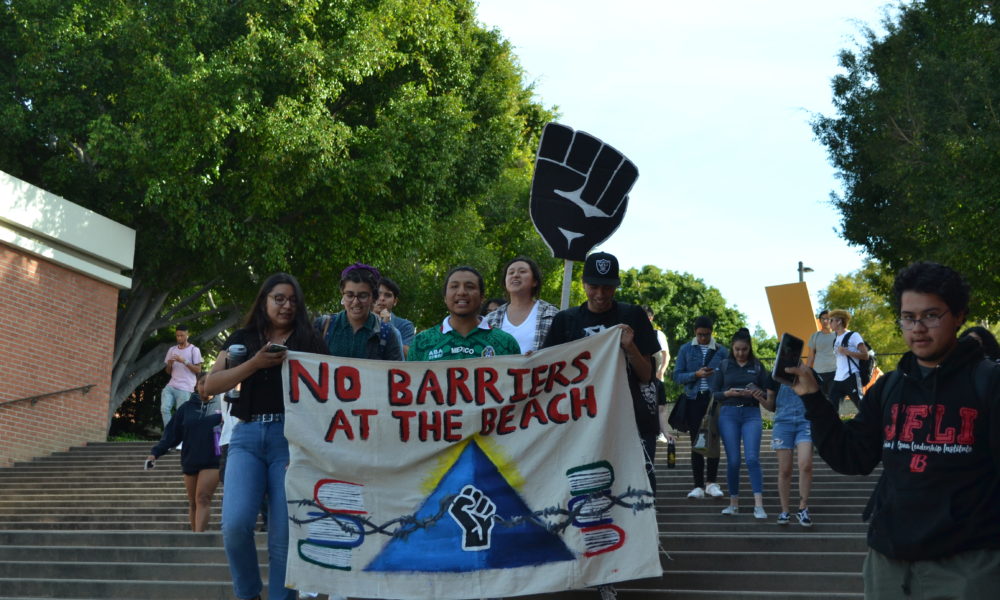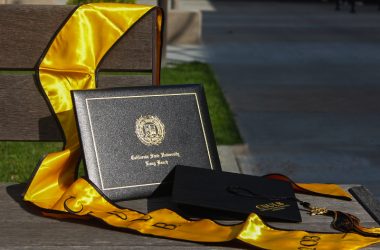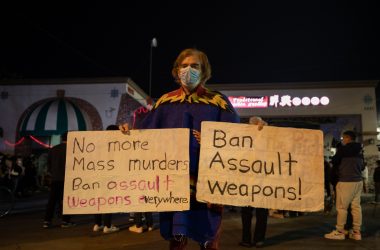Growing up up in the San Gabriel Valley, a microcosm within Southern California that has one of the highest Asian American populations in the States, I rarely gave thought about what it meant to be a first generation American. I wasn’t targeted for my culture, it didn’t matter that I brought dumplings or noodles for school lunch, a lot of my classmates did. In my community, there was a mix of Mandarin and English during sermons at our bilingual Church, I understood most of it and didn’t think much of it.
Throughout my teenage years my parents never forced my siblings and me to keep hold of Chinese traditions. It was complicated anyway— my parents came from Hong Kong and Taiwan to North America as teenagers; saying we were Chinese was easier than explaining where our family was “from”.
We celebrated Chinese New Years, or marked the passage of the years with traditional holidays less and less. If identity was ever discussed in the house, it was centered around my parents’ faith and our church community. My parents’ immigration stories were cautionary tales of being grateful to God for what we had; there was never any discussion about how their American experience had been shaped by their immigration.
Attending Long Beach State was the first time in my educational experience that a majority of my peers shared a different background than my own. It’s fair to say that all freshmen experiences are disorienting; all at once we are told we need to know who we are. Choose a major. Choose friends. And many of these decisions are predicated on our individual identities.
As I jumped from performing arts to marine biology and considering everything in between, I was forced to confront my past as I was determining my future.
As a sophomore, I joined student government as a senator at large in the Associated Students, Inc. This position forced me to be uncomfortable with the misunderstandings I had about many of my peers and my privileges growing up in the suburbs of the San Gabriel Valley.
It was mid-March, pre-COVID this past semester, when I sat with other students at our rowdiest Senate meeting that term. Our Senate meetings were usually sparsely attended but that day over a hundred students arrived to protest.
AB1460, a new California assembly bill written by legislator Shirley Weber, was proposing a three unit Ethnic studies requirement for all students.
The role of ASI Senate is to pass resolutions, or documents, clearly stating the intention or demands of students on campus to share with campus administration, local municipalities and even federal and state government.
The week before, we voted down a resolution in support of the bill.
That meeting had been tense, proponents of the resolution were adamant that this bill needed to be pushed forward for students. Opponents, including myself, were not specifically against Ethnic studies but rather worried about the larger implications of enforcing an additional three unit burden on students.
Engineering and business majors at our school are highly valued in their respective fields because our university has specific accreditations that prepare students with skills that other graduates might not have. Questions erupted and flew across the discussion: If another class was added, how would folks fit in their core classes that were already crammed? What about a student’s freedom to choose their own general education courses? What of Academic Freedom by professors? What if this bill was excluding Jewish Studies?
There were no provisions made out on how the bill would be paid for. Where would the money arise to pay for the increased staff within the Ethnic studies departments across the California State University system? Needless to say, there were many concerns yet no immediate answers.
Instead of tabling the resolution for the next week or waiting for the second reading to make another vote, a majority of the Senate voted down the resolution in support of AB1460
The next week as students of color flooded the Dr. Stuart L. Farber Senate Chambers chanting “Educating is not only for the rich and white”, I asked myself: what had I missed? I was defensive and almost self righteous because I cared about my role in student government and I believed that I was putting in the work of making sure I was properly representing the needs of all students. And here was a group of students furious that I wasn’t doing my job.
By no means were we perfect, but our Senate was composed of students from all backgrounds; those who were international, formerly incarcerated, different ethnicities and cultures. Everyone that sat on the board could claim association to an underprivileged group. Nobody on our board would be characterized as the hidden bureaucratic types, conniving to benefit from student misery. Most Senators join student government to do good in their time at Long Beach State.
That same week, our student government decided to hold an open forum for students to voice their opinions. Many students in support of AB1460 were students from the Chicano and Latino Studies Department on campus and were frustrated. Funding and faculty sizing for the department of Africana Studies and American Indian Studies have shrunk over the years as our university and students found these classes irrelevant to their core majors and less individuals were majoring in these disciplines.
As I spoke to faculty across campus, one of my professors explained to me that this debate was striking at the heart of education. What does it mean to graduate with a degree, to become a working member of society that can produce for the economy? Or should we strive for something deeper and aspirational, that we leave university, as enlightened individuals who know how to navigate difficult and necessary conversations about America’s convoluted history with racism?
At this moment the American public is at a reckoning with the deaths of George Floyd, Breonna Taylor, Ahmed Arbery and many others. And most recently the police violence directed at Jacob Blake. Violence towards people of color, especially the Black community and Indigenous community, has always existed from the time that policing and even racialization were means of stealing, maintaining and protecting privileged property.
We live in an era now, where a video can go viral in a matter of minutes, and images of violence can shock us out of ignorance into action.
But at the time Ethnic studies itself was born, there was no serious examination of how societal inequities stemmed from the lived histories and experiences of people of color in the United States. The student led movement began in 1968 at San Francisco State where several hundred students protested under the banner of the Third World Liberation Front uniting Asian, Latinx, and Black students. They were able to convince the university to create an Ethnic studies department, the first of its kind that eventually inspired other departments to be started across the country. Student protestors argued that these classes were integral to understanding the lived experiences of people of color and solving endemic issues within communities related to poverty and violence.
Shirley Weber, the author of AB1460, also helped found the Department of Africana Studies at San Diego State University in 1972, where she has taught for over forty years. Today as a legislator, she has been vocal about police violence and issues related to equity in public education. As a legislator, she’s brought in her expertise as an Ethnic studies professor to make an impact, system wide in higher education.
I didn’t know all of this history before I voted that day in the senate. And after I did research on the matter, part of me was angry that I didn’t do my due diligence before voting and partially unwilling to admit I was wrong. The bill at the time was still undergoing revisions, and in truth there is never a perfect way of writing a bill that requires a three unit class. Someone would always feel slighted or annoyed.
But if the CSU students failed to show support for the new required curriculum they would be paying tuition for, the bill would die before even reaching the Governor’s desk.
The bill was revisited in a resolution I presented to the ASI Senate before we went to lobby at the State Capital. In that resolution, we passed support for AB 1460 alongside other bills related to higher education. At a faculty meeting, I stood in front of the Academic Senate to explain why the ASI Senate had reached a new conclusion, and my personal thoughts on the value of Ethnic studies to convince them to support the bill in its unaltered form.
The Board of Trustees had proposed an amendment that was going to significantly dilute the original purpose of the bill. It was going to place Ethnic studies amongst a series of classes that students could take to fulfill a generalized Ethnic studies and Social Justice requirement.
As of August 17, 2020, Gov. Gavin Newsom signed the original bill into law, mandating that starting with the incoming class of 2024, students will have to take a three unit class in Ethnic studies.
It’s important to note that I have yet to take an Ethnic studies course; I am majoring in applied math, economics and international studies. However, through international studies, I was able to take a course that covered international conflict which was the first time I studied the dynamics of power beginning with feudalism, leading to colonialism, and to the current present of capitalism. More significantly, how the invention of racial differences have played a role in the transmutation of power.
As a poet in the open mic scene in Los Angeles, conversations and performances with Black, Indigenous and people of color and LGBTQIA+ artists have helped me take ownership of my own identity and understand my politicization as a queer Asian American writer.
However most of what I have consumed about Asian American figures in activism and writership, like Ocean Vuong and Grace Lee Boggs, have arrived from personal research. I remember wishing that I had a class where I felt acknowledged as a queer first generation Asian American.
Perhaps that is what I see as another benefit of this requirement; a driving curriculum that centers BIPOC voices and lived experiences. Proponents of the requirement have pointed out how this will prepare students of all backgrounds to lead a racially diverse workforce. But more importantly students of color who historically have lower retention rates, may be made to feel seen by their professors and universities.
A college degree is increasingly a requirement for low income families from communities of color to achieve social mobility. CSULB, like many other CSU’s, is labeled a Hispanic Serving Institution and receives federal money because of this status. And yet, system wide, there is still a dearth of Hispanic teaching faculty. Integral to the support system for vulnerable students is a welcoming and open campus and it is often easier to be heard and to succeed when you share a similar background to your professor.
It’s irrational to hope that a single course requirement could resolve all the issues arising from historical and current instances of racism. However, in these classes, students will be invited to think critically about race and its relevance to our history, present and future. Police violence, the caging of children at the border, the War on Terror; these are only the overt tip of the larger stem of institutionalized racism.
I think back to my high school, which is of course like every other school in America is integrated. Still, there were clear biases surrounding students; Asian students made up the majority of my Advanced Placement classes and there was only ever at most a handful of brown kids.
In elementary school, there were specific teachers, most of whom were white, who used their language and disciplinary action to label some students as “problematic”. The “gifted” students were given more attention in the ironically labeled GATE program or gifted education program.
The first time I visited my Dad’s work at a Los Angeles Unified School District middle school, I saw real gates. Fences were erected around the premises of the school alongside signs that said “gang free zone” and metal detectors to scan students for possible weapons.
Though my Dad’s students and I could equally claim a public school education, our educational experiences were far from equitable. During the LAUSD teachers’ protests, I learned from my Dad’s colleagues that some of their schools only had a nurse at times once a week and poor funding for libraries. I, on the other hand, had a nurse every day of school and as a booknerd I had always been best friends with the librarians. If there was ever a book that wasn’t already in the system, I could request for new titles.
These are just a few instances how a “color-blind” society can still perpetuate racism and further inequality. I had to confront the uncomfortable and accept that I had the narrative wrong before I could really understand what my fellow students were asking for.
And as a nation, no healing or reparations can begin unless America learns its wrongs to set course for a right future.
In a moment of poetic justice, the beginning of Ethnic studies in the CSU, is also where it is being revitalized. I can see the ripple effects, as high schools will eventually bring Ethnic studies into their classes as students look to complete college coursework. I see a possibility of a future where students won’t have to wait as long as I did until college to be self-aware on issues related to racism.
But the CSU is only the nation’s largest public university system, and who’s to say that the rest of America won’t follow in our footsteps again?
I was partially inspired to write this after much thought given to the NY Times’ new podcast series “Nice White Parents” which was an extended investigation into the inequalities of New York’s public school system. I encourage everyone who found this article interesting to go ahead and give them a listen.





Thank you for this honest, thoughtful, and courageous piece. I regret I wasn’t present in Senate the day Michael’s resolution was voted down. I truly believe I would have brought experience and a voice of reason to that meeting that would have led us to where we needed to be without tearing the Senate in two (I blame leadership, not you). I also regret that ASI Execs chose to fuel the fires for two weeks rather than publicly inform the student body of the progress we had been making, outside of Senate chambers to resolve to support Ethnic Studies. WE HAD THE VOTES BEFORE THE OPEN FORUM. It gave the student body the illusion and belief half of us didn’t care and were the enemy. And as you witnessed, they treated us as such. Good people, ALLIES, were unnecessarily hurt and subjected to vile acts of hate publicly and other wise. But I get it. I’ve been there. When people are hurting and frustrated, sometimes they choose to hurt the closest target to them.